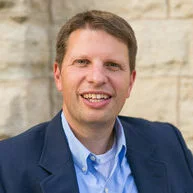Emerging adults often have their focus directed squarely upon the future. Parents and other concerned adults regularly ask them about the five and ten-year plans they are devising for adulthood. They are preparing for a future career and, at least potentially, a future spouse and children.
They develop dreams of what they hope to be and what they hope to do, cultivating pictures of the ideal adult life that drive and motivate them in their pursuit of success. And if they are Christians, they also tend to develop pictures in their minds of the future men or women of God that they desire to become.
Dreaming is a Powerful Practice
Such dreams about the future are incredibly valuable at this life stage, planting seeds in the imagination regarding desired purposes and goals. This is the developmental moment, as Sharon Parks notes, most given to Big Questions, Worthy Dreams.Sharon Parks, Big Questions, Worthy Dreams: Mentoring Young Adults in their Search for Meaning, Purpose, and Faith (San Francisco: Jossey-Bass, 2000). It is a time to form ideals related to both personal life and the world at large, furnishing the mind with images of and aspirations toward the true, the good, and the beautiful. Such dreams serve to inspire emerging adults in developing their gifts and passions for lives of meaningful contribution. They also serve as critical antidotes to the cynicism and indifference that all too often poison this stage of the life course. Dreaming is, therefore, a powerful practice for emerging adults.
Yet we must also recognize that an orientation towards future dreams can diminish an attentiveness to the present moment and to the daily rhythms of life. When I was an undergraduate student, I frequently expressed dreams of Dreams plant seeds in the imagination.who I wanted to be and what I wanted to do “some day.” I read biographies of great Christians—George Müller, Hudson Taylor, and Amy Carmichael—and envisioned my own life sold out in similar ways for Christ. I had dreams of growing as a man of prayer, as a man who contagiously shared the Gospel with others, as a man committed to raising up a family to love and serve the Lord, and as a man who lived out his vocation (at that time I was planning on medicine) for Kingdom purposes. I had dreams!
Yet in my case these aspirations were fairly disconnected from present reality. I always thought in terms of committing to such things “when I am done with college/graduate school” or, as I often articulated it, “when I am done with college/graduate school and finally have some time” (my current students are always dismayed when I tell them that time does not suddenly expand after graduation!). My sense was that I could simply “flip a switch” when I got to my late twenties and find that the qualities I desired were ready for action (and that my negative habits and traits could simply be extinguished on the spot). I imagined that “future me” would be able to live into all of the things that “present me” had envisioned. Yet I failed to recognize one important point—“future me” was actually the result of a long string of “present me” moments lived out over this crucial decade.
The Only Preparation That Amounts to Anything
Back in the early twentieth century, renowned educator John Dewey spoke of what he called the “experiential continuum.”John Dewey, Experience and Education (New York: Macmillan, 1938), 28. By this he meant that our previous experiences shape our present attitudes and dispositions, while our present experiences are shaping the attitudes and dispositions that live on into the future. In other words, the shape of our future selves is directly related to the kinds of habits, practices, and dispositions that are currently being formed through the experiences of our lives. For this reason, he reconceived the notion of “preparation:”
The ideal of using the present simply to get ready for the future contradicts itself. It omits, and even shuts out, the very conditions by which a person can be prepared for his future. We always live at the time we live and not at some other time, and only by extracting at each present time the full meaning of each present experience are we The ideal of using the present simply to get ready for the future contradicts itself.prepared for doing the same thing in the future. This is the only preparation which in the long run amounts to anything.John Dewey, Experience and Education (New York: Macmillan, 1938), 49.
Because of the continuum of experience, the present moment is always laying the groundwork for the future in significant ways. Envisioning a godly future can be a very helpful activity, but if it is not attended by a willingness to begin living the embodied patterns of that dream in the present, it can instead become a means of perpetual delay. In my collegiate days, my own dreams of becoming a prayer warrior and a contagious Christian did not always translate into the hard work of developing daily practices of prayer or seeking out contact with nonbelievers. Likewise, my future desire for living my vocation for kingdom purposes did not translate into a concern to treat my current vocation—life as a college student—in this intentional way. I viewed this as something I would do later, when I actually had a “real job.” Of course, this is perhaps not surprising. Entering into the desired future life in the present involves hard work and discipline—it is costly. Dreams cost far less and can even lull us into complacency. I often excused my lack of attentiveness to my spiritual and vocational life in the present by taking comfort in my pious dreams for the future.
Cultivating a “Harvest Vision”
If all of this is true, one of the most helpful things that young adult pastors, mentors, and parents can do is to help emerging adults cultivate a “harvest vision.” Galatians 6:7 reminds us that, “A man reaps what he sows.” Sowing to the sinful nature leads in the direction of destruction, while sowing to the Spirit leads in the direction of eternal life (vs. 8). I have always found it interesting that the passage begins with the warning, “Do not be deceived” (vs. 7). We can deceive ourselves by thinking that there is little connection between sowing and reaping, especially since there is often a time gap between these activities. One may sow to the flesh and not experience immediate negative consequences. While each step in this direction gradually works to twist and corrupt the soul, it may indeed be weeks, months, or years until the negative fruit of such sowing becomes visibly apparent in the emerging adult’s life.
Many speak of this time of life as the era in which young adults work youthful passions “out of their systems.” However, the reality is often quite the contrary: sowing to the flesh actually works habits and dispositions “into their systems” in ways that gradually weaken the will and shift the mind and heart. As medical doctor Jeffrey Satinover comments, habitual patterns produce real physiological changes in the brain, forming grooves in neural pathways that facilitate repetition:
Over time, the choices we make fall into ever more predictable patterns because the pattern of choices tends to be self-reinforcing. As we practice certain behaviors, they become easier and easier, The pattern of our choices tends to be self-reinforcing.and we become “better and better” at them. As they become easier, we grow more and more likely to choose them. The more we choose them, the more deeply embedded they become, and so on. What starts out as relatively free becomes ever less so as time goes on.Jeffrey Satinover, Feathers of the Skylark: Compulsion, Sin and Our Need for a Messiah (Westport, CT: Hamewith Books, 1996), 57.
This is simply another way of saying what Augustine recognized long ago, that “By servitude to passion, habit is formed, and habit to which there is no resistance becomes necessity.”St. Augustine, The Confessions, trans. by Henry Chadwick (New York: Oxford University Press, 1992), 140. Cultural definitions of emerging adulthood often portray this time of life as a giant “etch-a-sketch,” a canvas on which one can “draw” life experiences and then simply “shake to erase” at the end to start over. Yet each drawing—especially when repeated—leaves a trace which begins to form visible grooves over time.
Yet the opposite is also true. Emerging adults can also be “deceived” about the power of sowing to the Spirit. In a similar manner, such work is often hidden from view and gradual in nature. It is easy to think that such work is pointless when spiritual results are not quickly forthcoming. Despite the fact that the will, the heart, and the mind are being gradually reshaped, actual growth may not be quickly “felt.” In fact, at times the work of the Spirit may be such as to spark a greater awareness of one’s sin, leading to feelings of regression. In such situations, emerging adults need to be continually reminded that they walk “by faith, not by sight,” trusting in God’s good work and purposes despite seeming evidence to the contrary.
One element of “sight,” however, will be important. Adult mentors play a critical role in helping emerging adults pay attention to the ways in which their present lives are shaping their futures. They can be there to share observations about life trajectories. They can, in other words, point out the potential futures resulting from emerging adults’ present lives. They can also dream with emerging adults about desired futures and help them think carefully about the kinds of life practices that will lead in these directions. Perhaps even more importantly, adult mentors serve as living examples of these principles at work. As those with more experience and therefore a longer view of the journey, they can serve as exemplars of the experiential continuum, demonstrating the ways such sowing and reaping has worked out over the long haul. In addition, they are there to attest to the fact that the long path of sowing to the Spirit is indeed worth it.
A harvest vision cuts through the deceit of “someday” by emphasizing the continual nature of formation and the reality that the future self is inextricably intertwined with the habits and dispositions formedA harvest vision cuts through the deceit of “someday.” within the present self. Spiritual attentiveness, an intentional focus on God’s present work in the soul, is strengthened by this recognition. Adult mentors, acknowledging the power of emerging adult dreams, can work to tether these dreams to a present-minded formational focus. They can, in other words, encourage emerging adults to engage the spiritual life not “some day” but “Today” so that they “will not be hardened by sin’s deceitfulness” (Heb. 3:13).





Comments
Be the first one to make a comment!